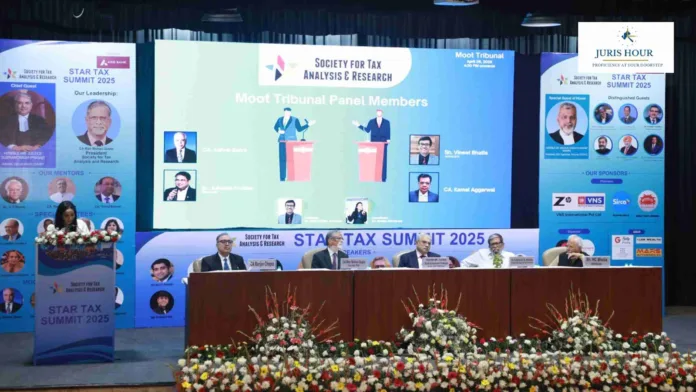Delivering a keynote at the Star Tax Summit 2025, S.K. Rahman, IRS – Chief Commissioner, outlined the Government’s evolving approach to tax administration. He emphasized the necessity of transforming taxation into a fair, minimally intrusive, and compliance-friendly system, aiming to make it less painful for the honest taxpayer while still securing revenues essential for nation-building.
Rahman asserted that tax disputes should not be a norm, but an exception. Avoiding unnecessary litigation is key to reducing taxpayer burden, preserving judicial resources, and promoting economic stability.
Why Tax Disputes Arise?
Rahman explained that tax disputes largely arise from differences in interpretation, assessment, and application of the law between the taxpayer and the revenue administration. These conflicts can often be resolved through clearer communication, responsive governance, and mechanisms that encourage early dispute resolution.
Read More: DAY 1 | STAR TAX Summit 2025: A Powerful Start with Focus on Taxpayer Rights and Duties
Government’s Litigation Management Strategy
The government has given multiple opportunities to assessee and made available reduced penalties and put an end to litigation to cases where they consider that tax is payable.
As part of the National Litigation Management Policy, the Government has introduced monetary thresholds to reduce frivolous appeals:
- Supreme Court: Appeals only for cases above ₹2 crore
- High Courts: Appeals above ₹1 crore
- GSTAT: Appeals above ₹20 lakh
However, he clarified that trade-initiated litigation remains unrestricted, except for a minimum limit of ₹2 lakh before GSTAT.
This move is designed to prioritize significant matters and avoid overburdening the judicial system with low-value disputes.
Mechanisms for Pre-Litigation Dispute Resolution
Rahman highlighted various opportunities for taxpayers to settle disputes early, thereby avoiding full-fledged litigation:
- Voluntary Tax Payment:
Under Sections 73 and 74 of the CGST Act, taxpayers may self-assess and pay taxes with interest and reduced penalties:- Before issuance of SCN: 15% penalty (Section 74)
- After SCN but before adjudication: 25% penalty
- Within 30 days after adjudication: 50% penalty
- In such cases, proceedings are deemed concluded, and no further notice is issued unless there is significant short payment.
- Section 74A allows conclusion of proceedings even where there is fraud or suppression, provided conditions for voluntary compliance are met.
- Post-adjudication settlement: Taxpayers have a defined window to resolve issues, ensuring finality and reducing backlog.
Input Tax Credit (ITC) Flexibility
Rahman acknowledged that the initial years of GST rollout were fraught with technical and procedural challenges. To remedy unintended hardship, retrospective relaxations were granted:
- Under Sections 16(5) and 16(6), ITC claims were allowed for FY 2017-18 to 2020-21, provided returns were filed by 30th November 2021.
- Provisions were introduced for revival of ITC for cancelled-but-restored GST registrations, offering a second chance to impacted taxpayers.
Waiver of Interest and Penalties: Section 128A
To further encourage resolution, Section 128A was introduced to grant conditional waivers on interest and penalties for the fiscal years 2017–2020, applicable to cases raised under Section 73.
This provision targets cases where procedural errors or transitional confusion led to disputes, offering taxpayers a window to settle without litigation.
Appeals: Strategic and Timely Filing
Rahman offered practical insights on the appellate process:
- Considerations before appeal: Strength of evidence, legal precedent, the Department’s likelihood of counter-appeal, and the cost-benefit of litigation.
- Pre-deposit requirements are mandatory (10% of disputed tax), ensuring only genuine disputes progress to higher forums.
- Timelines: Appeals must be filed within three months, beyond which they risk rejection due to delay.
The speech reiterated that each appeal should be a considered decision, not a routine response.
Conclusion: The Purpose of Taxation and the Role of Stakeholders
Quoting Benjamin Franklin, Rahman remarked:
“In this world nothing can be said to be certain, except death and taxes.”
He concluded by urging both taxpayers and administrators to shift focus from adversarial litigation to cooperative compliance. The objective should be clarity, fairness, and finality, not perpetual conflict.
“Taxation is not meant to be a source of pain but a tool for nation-building,” he said, underscoring the need to minimize disputes and channel energy into growth and innovation.

